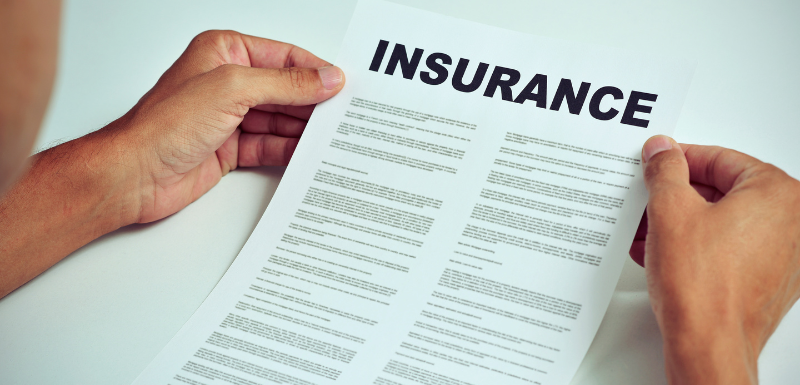10 Things to Consider when Buying a Term Life Insurance Policy

If you are the sole earning member or one of the earning members of your family, you need to buy term life insurance. Your life insurance policy is a financial backup for your family in the event of your untimely demise.
During your lifetime, you will work towards fulfilling your financial goals. However, in your absence, the financial planning journey can get derailed. In such a scenario, the money received from a life insurance plan will keep the family's financial planning journey on track.
So, if you don't have life insurance, you must buy it immediately. If you already have life insurance, you should evaluate the cover amount regularly to check whether it is adequate. The cover amount should align with the amount of your financial liabilities and financial goals.
Which Is The Best Term Life Insurance Plan?
There are different types of life insurance plans available in the market. However, you should opt for a term life insurance plan as it can give you a higher cover at a lower premium.
Things To Consider Before Buying Term Insurance
Here are few points to remember while buying term insurance plan.
Coverage amount
The coverage amount is one of the most important factors you should consider. To arrive at an adequate coverage amount, you must consider the following factors:
- The amount of all outstanding loans like home loan, vehicle loan, personal loan(s), credit card dues, etc. From the total, deduct the value of the assets that you own.
- The amount required for all financial goals like a child’s higher education, marriage, spouse’s retirement
- Family’s monthly expenses
- Any other amount that you need for any specific purpose(s)
The other ways of calculating the insurance amount include:
- Calculating the amount you will earn during the remaining working years, or
- A multiple of your annual income, i.e. 10, 15, or 20 times your annual income, etc.
Many people do have life insurance, but the coverage amount may not be adequate. Hence, these people are underinsured. Being underinsured will not take care of all your financial liabilities and financial goals after your demise. It will lead to financial hardships for the family. Hence, you should have an adequate amount of life insurance coverage.
Buying life insurance is not a one-time process. You should review your life insurance cover regularly. Do it specifically after events like taking a home loan, marriage, childbirth, etc.
2) Premium
A term life insurance plan is the cheapest among all other life insurance plans. It can provide you with a higher coverage at a lower premium. However, you should compare the premiums of various term insurance plans across various life insurance companies. You can use an insurance aggregator website or app to compare multiple term plans. However, do note that most companies offer distinguishing features with their plans. Hence, a straightforward comparison may not be possible.
However, comparing multiple plans across various insurance companies will give you an idea of the appropriate premium. It will help you decide which company to go for.
3) Age and Its Role in Determining the Premium
In life insurance, an individual's age is one of the important determinants of the premium. The general rule is: The higher the age, the higher the premium, other things being constant. Hence, you should buy a term insurance plan early in your life. It will help you lock in the lower premium for the entire tenure of your plan.
Usually, as a person ages, the risk of contracting diseases increases. If an individual has an existing disease, the premium will be higher than a healthy individual. Hence, you should buy a term plan early in life when you are healthy and disease-free.
4) Claim Payout Options
Term plans offer various payout options at the time of claim. Some of these include:
Lumpsum Payout
The entire amount is paid out in lumpsum in the event of death of the insured and the policy is closed. Earlier, only this option was available. Now also, the option continues to be available, along with the addition of other options.
Instalments
The claim amount is paid in equal instalments spread across a chosen tenure, usually, ranging from 5 to 20 years.
Increasing instalments -The claim amount is paid in instalments spread across a chosen tenure, usually, ranging from 5 to 20 years. The instalment amount increases annually by a specified percentage (usually 5 to 10%) as chosen.
Part Lumpsum and Instalments
A specified percentage of the total claim amount, as chosen, is paid in lumpsum on the death of the insured. The remaining amount is paid in instalments over a specified tenure as chosen.
While choosing a term plan, check which of the above claim payout options are being offered. Discuss with your family and select an option that suits your requirements. If you have loans, you can choose part lumpsum and instalments option. The lumpsum part can take care of the loans. The instalments amount can be used for the family's regular expenses.
5) Plan Tenure
The plan tenure plays an essential role in determining the annual premium. Ideally, you should choose the tenure such that its maturity matches the usual retirement age of 60 years. Generally, the higher the maturity age (beyond 60 years) an individual chooses, the higher the probability of death within the plan tenure. Hence, the higher will be the premium.
If your financial liabilities and responsibilities are expected to continue beyond your working age, you may choose the plan tenure accordingly. These days, most term plans can be bought till the age of 75 to 80 years or even beyond.
6) Increase in Cover at Various Life Events
Most term plans offer you an option to increase the coverage amount on the happening of certain life events. Some of these include:
- Taking a home loan,
- Marriage,
- Childbirth, etc.
The increase in the cover amount for each event is specified. The feature to increase the cover amount is optional. If you feel an increase in cover amount on any of these life events is required, you may opt for it accordingly.
7) Availability of Riders
The availability of riders increases the scope of the plan coverage. Some of the riders offered include:
Accidental Death
The rider offers additional coverage for death due to an accident over and above the base cover. For example, assume you have opted for a base cover of Rs. 1 crore and an accidental death rider of Rs. 25 lakhs. If death happens due to any reason other than an accident, Rs. 1 crore will be paid. If death occurs due to an accident, Rs. 1.25 crore will be paid.
Waiver of Premium
The rider waives the premium on the happening of specified events, such as disability. If an individual chooses this rider and is disabled, the premium is waived, and the policy coverage continues.
Critical Illness Cover
The rider provides coverage for specified critical illnesses. If the insured is diagnosed with a specified critical illness, the rider amount is paid.
While choosing a term plan, check the riders being offered. Add the rider(s) and customise the policy as per your needs.
8) Health Information and Other Disclosures
While filling out the term insurance application form (whether online or offline), ensure you disclose all the information correctly. You need to disclose information about:
- Any habits such as smoking, tobacco, alcohol, etc. You may be required to disclose details of the frequency of smoking, alcohol intake, etc. For example, how many cigarettes are smoked daily / how much alcohol is consumed and how frequently
- Any existing health conditions you are suffering from
- History of any illnesses in the family
- Whether you are in a risky profession like working in a coal mine or explosive factory, etc.
- Whether you participate in any adventure sports like scuba diving, hiking, etc.
All the above information helps the insurance company price the risk appropriately. Your claim can be rejected if the insurance company proves that you have knowingly hidden any material information.
9) Claim Settlement Ratio
The claim settlement ratio (CSR) refers to the number of claims settled annually by the insurance company for every 100 claims received. For example, if the company has settled 98 claims out of the 100 claims received, the CSR will be 98%.
The higher the CSR of the life insurance company, the better. Please note that the CSR is for all plans of an insurance company and not just term plans. While choosing a term plan, check the CSR of the insurance company.
10) Read Policy Terms and Conditions
Before deciding to purchase a policy, read all the terms and conditions. It will give you the details of what is covered and what is not covered in the policy. It will help you make an appropriate decision.
Buy a Term Plan and Provide Financial Security for the Family and Peace of Mind for Yourself
The above are some important factors you should consider when buying a term life insurance plan. There may be other factors you may have to consider. If you have still not purchased life insurance, ask yourself a couple of questions. Who will pay your home loan and other loans after your demise? Who will pay for your child's higher education, marriage, spouse's retirement, family monthly expenses, etc., after your demise?
If you don't have any appropriate answers to the above questions, buy a term insurance plan immediately. By purchasing a term plan, you will be buying financial security for your family and much-needed peace of mind for yourself.
Your Investing Experts
Relevant Articles
FinEdge’s 'DiA' Wins ET BFSI FinNext 2025 Award for Innovative Wealth Planning
Dreams into Action (DiA), FinEdge’s proprietary bionic investing platform, has been recognised as the winner in the Innovative Wealth Planning Tools category at the ET BFSI FinNext Awards 2025. This award celebrates not just technology, but purposeful innovation that improves outcomes for investors. Here’s what DiA was built to solve, why it works, and why this recognition matters.
Budget 2024: Change in LTCG Taxation on International Funds – Should You Consider Investing?
In the July 2024 Budget, the Finance Minister announced changes in the Long Term Capital Gain (LTCG) taxation for some asset classes. These include equity fund of funds (FoFs), international equity FoFs, gold mutual funds, etc. Earlier, these were subject to taxation at the individual’s slab rate due to a change in the taxation of debt mutual funds in the previous budget. After the recent LTCG changes, the appeal of these asset classes has increased. In this article, we will understand what international equity mutual funds are, their features, how they are taxed, and whether you should invest in them.
Why Should You Plan for Your Child’s Higher Education?
It is August 2024, and by now, you must have paid the annual school fees for your child for the academic year 2024-25. You must have noticed that the school may have increased the fees compared to last year to counter the impact of inflation. The same holds true for your child's higher education. The cost of education will increase with every passing year, and by the time it is time for your child to take admission to college, the education cost will have increased substantially.



